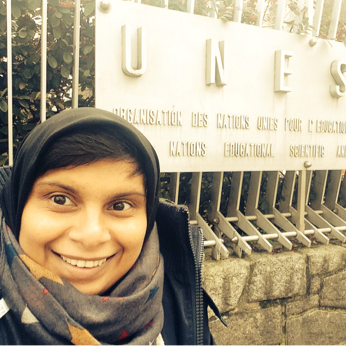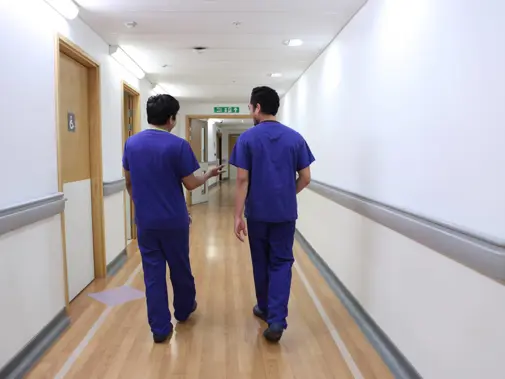 QURESHI
QURESHI
Healthcare is an important right for all patients, but at times it comes into conflict with the rights of HCPs (healthcare professionals) to be treated with dignity.
It is a topic that is really important to us, having both come from ethnic minority backgrounds, and experienced racism in the workplace without the support of any clear hospital guidelines.
It is an area we wrote about last year as part of a co-authored opinion piece in the BMJ highlighting the impact of racism on staff and the need to balance this against the rights of parents and of a child. The article described a range of potential responses to racism expressed by parents, including denouncement of racism and de-escalation, through to safeguarding procedures and criminal sanction.
It also made the case that NHS organisations needed to work on developing meaningful, clear operational policies to tackle racist parents as well as other forms of racism.
The BMA’s recent publication of its new guidance on managing discrimination from patients and their guardians/relatives is timely and welcome as for the first time it gives clear guidance from a trade union on the practical steps HCPs can take in addressing such behaviour.
Alongside a wide range of voices and organisations representing medics from all ethnic minorities, such as Melanin Medics and BMA’s own Forum for Racial and Ethnic Equality, we readily accepted BMA’s invitation to input into this guidance throughout the development stage and we are glad to see our BMJ article was cited and referred to in the finished document.
Our work particularly applies to guidance on discriminatory requests from legal guardians. The BMA guidance highlights the importance of involving HCPs affected in decision-making, and like us, describes the wide range of options available for actively managing these situations.
It also makes clear that if a legal guardian is abusive, but their presence is necessary for the wellbeing of a child/dependent adult, care ought to still be delivered with security support.
This does not in any way justify discriminatory or abusive behaviour, which can be appropriately sanctioned during and after stabilisation of the sick patient. Instigating emergency treatment merely recognises the challenge of having to choose between the lesser of two evils.
The BMA go well beyond the recommendations set out in our initial article by encompassing discriminatory requests across all protected characteristics in any medical speciality.
Whilst this may limit the specificity of the guidelines, it sends a strong message for uniformity and equality across all protected characteristics. We are also very aware that our BMJ opinion piece represented just that – our opinions, as one voice, coloured by our own lived experience – which is why it was so important the BMA guidance was consulted on so widely and is informed by such a rich diversity of voices.
The guidance sets out core principles that apply to all cases, that all doctors have a right to work in an environment free from abuse, harassment, and unlawful discrimination.
Patients have an unconditional right to emergency care, but a conditional right to non-emergency care. It also makes clear the responsibility of employers, who should take active steps to protect staff from unlawful discrimination, abuse and harassment, including utilising police and social services.
Whilst abusive behaviour can be minimised, when it does happen, the impact on staff ought to be acknowledged by employers who have a responsibility to support their staff.
 SULEMAN
SULEMAN
The BMA have also not been afraid to engage in nuance, and no doubt there will be much debate over some of their suggestions. They make it clear that there are some instances where requesting a personal characteristic of a healthcare worker is valid i.e. when the physical and mental wellbeing of a patient clearly necessitates it.
The BMA give two examples of this: asking for an ethnic minority psychiatrist where a patient’s trauma is as a result of experiences of racism, and asking for a female psychiatrist for a woman who has been the victim of sexual violence from a man.
Both are caveated by saying these situations are highly complex and should be assessed based on individual nuances on a case-by-case basis. When such requests are accommodated, it is important to ensure all staff involved are supported in their wellbeing and understand the justification for excluding certain groups of individuals from clinical care.
It is clear that HCPs with certain protected characteristics are vulnerable to abuse and unlawful discrimination. We applaud the BMA for taking a positive step to empower both employers and HCPs to stand up to inappropriate behaviour from patients and support staff that have been harmed in the process.
We are grateful to have been one of many voices that were heard in the process of generating the guidelines. It is now up to the GMC, the royal colleges, and individual hospital trusts to take the next steps and incorporate the principles of the BMA guideline into their own guidance. Most abuse in healthcare goes undetected, and this is partly because HCP feel there is nothing that can be done about that. This guidance from the BMA is a key step in fixing this.
Zeshan Qureshi is a paediatric registrar and a member of the Royal College of Paediatrics and Child Health’s Equality, Diversity and Inclusion reference group. He is currently studying issues around race and medicine as a postgraduate at the University of Cambridge
Mehrunisha Suleman is Director of Medical Ethics and Law Education at the University of Oxford
We are both writing in a personal capacity

